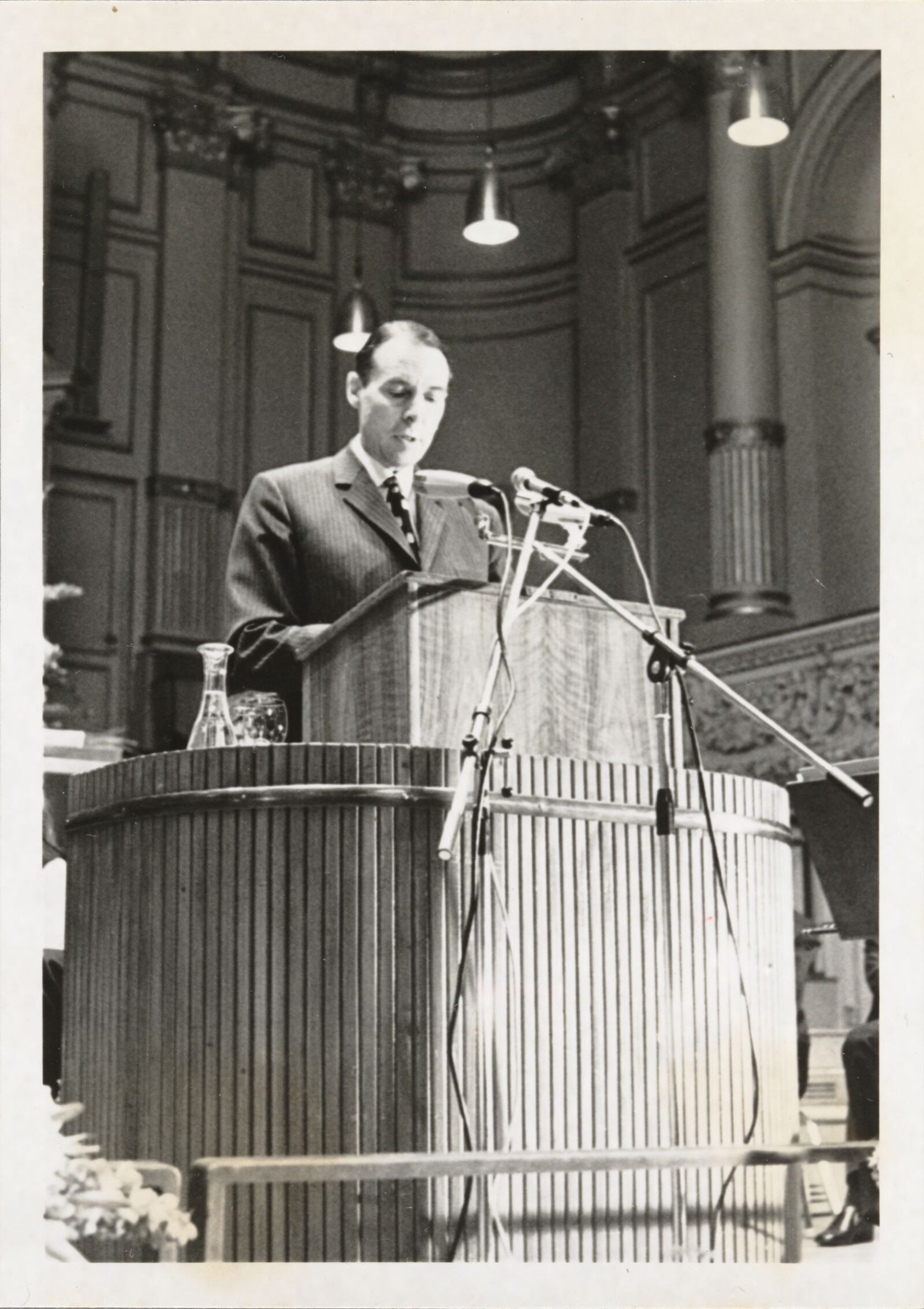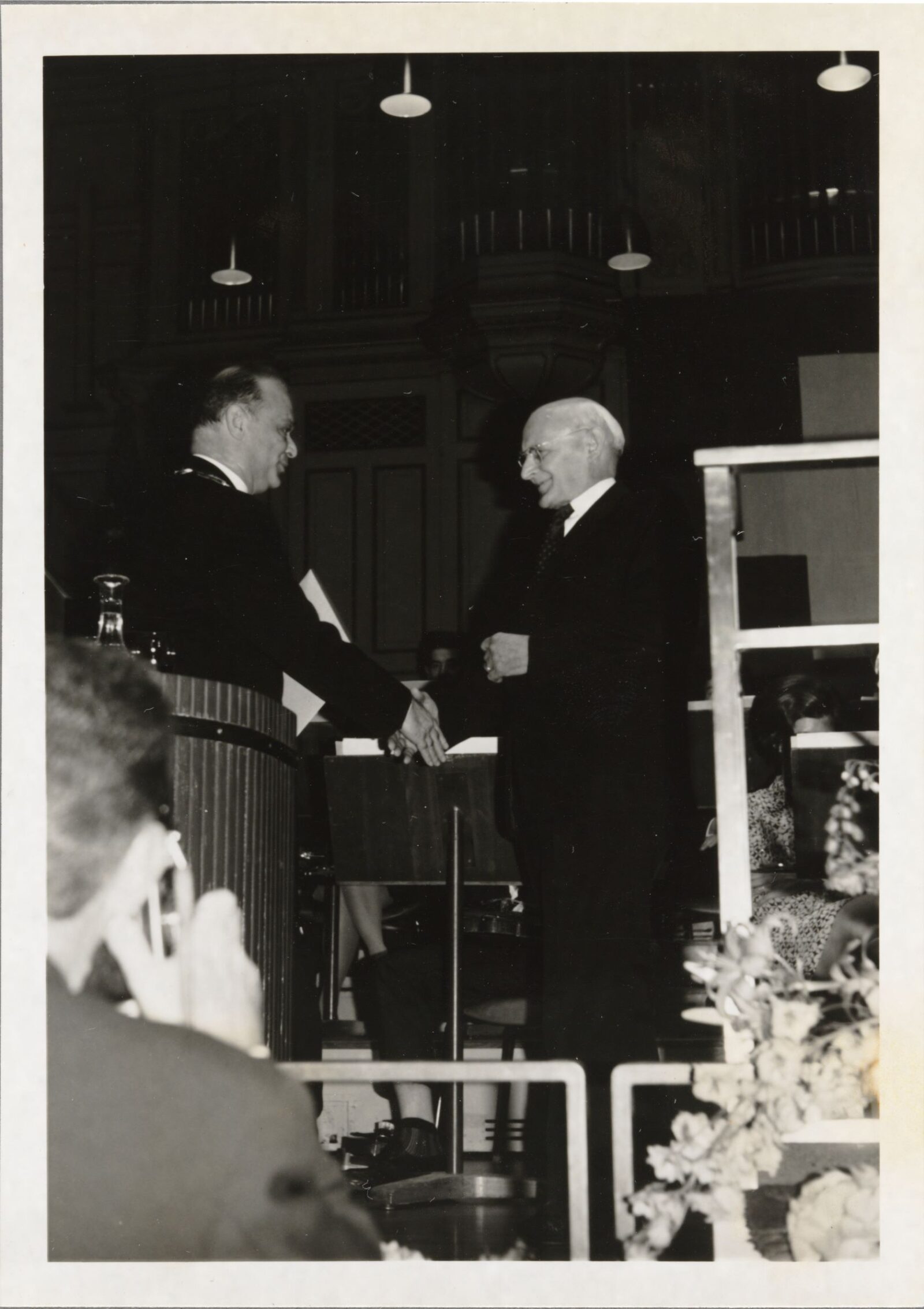100 years of Department VII
“In the service of the economy and for the benefit of the Swiss farming community”
Department VII or the Department of Agriculture celebrated its 100th anniversary in 1971. In ceremonial speeches and a symposium on the “Tasks and goals of agricultural research”, the then current challenges of agricultural sciences were discussed.
In the first 100 years since the department was founded, almost 2,000 students had gone through the training to become engineer agronomists at ETH. Since 1965, the number of students had increased steadily. In 1971, the department’s workload was higher than ever, with 357 students and 85 doctoral candidates and assistants, and a further increase in student numbers was expected. Around 25 professors and 36 lecturers taught the subjects of agriculture and food sciences, and an additional 27 professors taught basic subjects in the broader sense. The steady increase in new enrolments and the restructuring of the degree programmes into a more modular system led to a shortage of space, which was discussed several times in the context of the anniversary.
Growing world population, threatened environment
In presentations and ceremonial speeches, topics were discussed that have not lost any of their topicality to this day. For example, Federal Councillor Tschudi expressed his gratitude for the “important and successful work of the Department of Agriculture in the service of the economy and for the benefit of the Swiss farming community”. He also associated the department with increasingly central tasks in the area of “environmental protection for the preservation of favourable living conditions for plants, animals and humans, as well as in the realisation of Swiss agricultural policy”, as the Schweizerische Bauzeitung put it.
Another important task attributed to agricultural sciences was finding solutions for feeding the ever-growing world population and for the unequal distribution of food. Unlike today, at least for the then Head of Department VII, Professor Alfred Schürch, the challenge lay not mainly in the development of new breeding, production or distribution methods, but in a way to slow down population growth in time and thus achieve a balance between people and the environment, wrote the Schweizerische Bauzeitung.

Controversial subsidy policy
Several speeches mentioned the then current discussion on the Confederation’s price support measures. According to the Schweizerische Bauzeitung, Alfred Schürch criticised the development in a direction in which “efficient” farmers would be punished for their production and “the future production potential” would be “called into question by too drastic restrictions”. According to the Neue Zürcher Nachrichten, Professor emeritus of ETH and former Federal Councillor Wahlen, on the other hand, pleaded for the compensation of social and sociopolitical performance in forms that would not have the character of subsidies or social grants, but rather, if possible, that of a performance payment.
Wahlen was awarded an honorary doctorate during the ceremony “in recognition of his outstanding services to the promotion of food production based on his comprehensive knowledge of the relations between natural and economic sciences and his work, borne of warm humanity, for the reorganisation of primary production in the Third World”, as the anniversary commission wrote in a press release.

Create something that remains
The anniversary commission also wanted to create something that would be “more enduring than the celebration itself”, as it wrote in a press release, and decided to open the Agro Fund in 1971, which would support research projects for 25 years. The fund was intended to supplement federal funding by providing more flexible resources to support projects where “new problems unexpectedly arose”. With an advertising campaign, the anniversary commission drew the attention of over 450 companies and organisations associated with Swiss agriculture to the Agro Fund. This raised donations of over CHF 1 million.